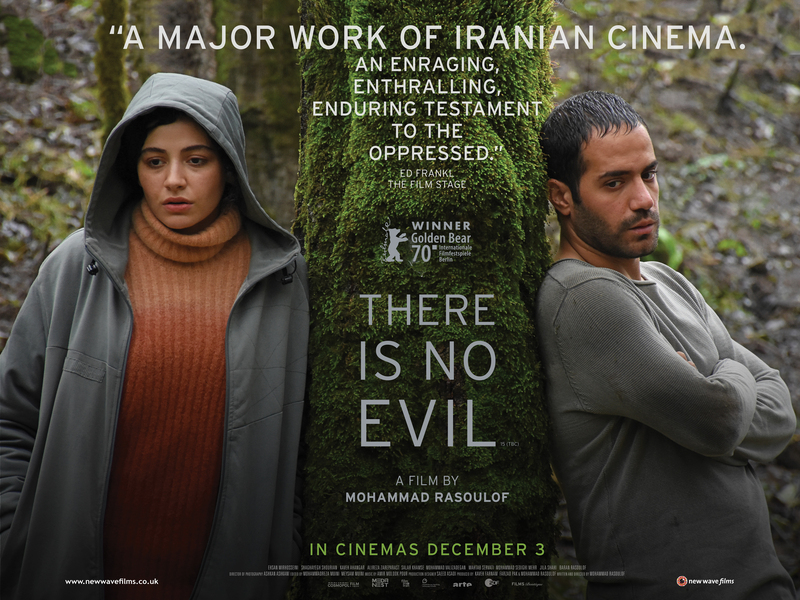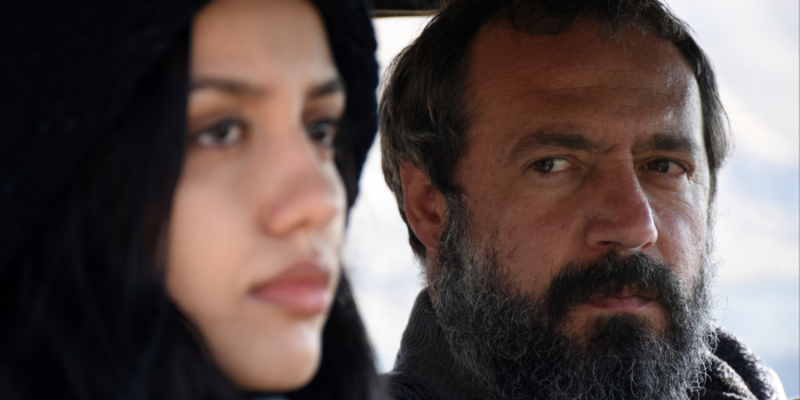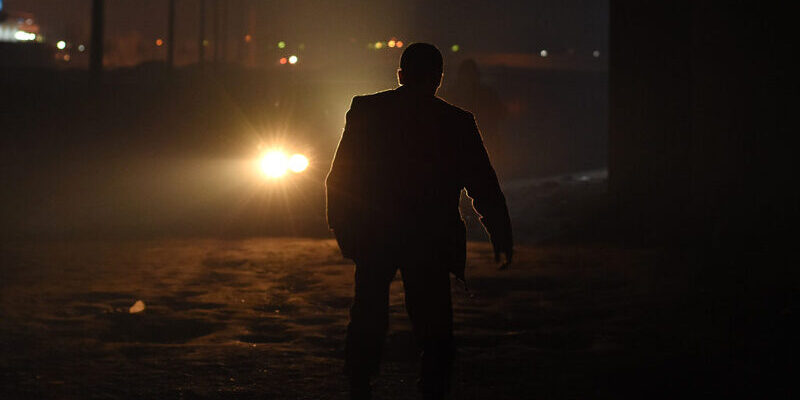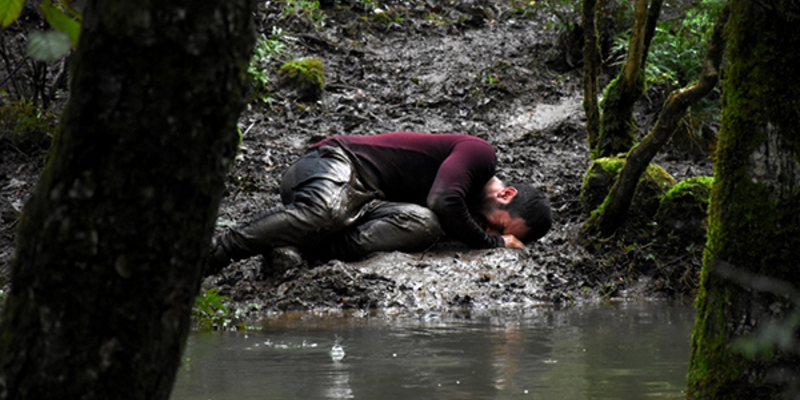
Review by
Benjamin Poole
Directed by: Mohammad Rasoulof
Starring: Ehsan Mirhosseini, Shaghayegh Shourian, Kaveh Ahangar, Alireza Zareparast, Salar Khamseh, Kaveh
Ebrahim

According to
a recent human rights report, Iran has the highest number of executions per capita in the world, and
over the last three years has state sanctioned the murder of 800 people.
Not that it is a competition, but in comparison
the US has killed 49 people in this way over the same period, which is, at least, less than half the 112 which they executed during
the first years of the decade. Japan, meanwhile, which still legislates
capital punishment, has not enacted this ultimate sanction for 10 years.
Which goes to show that progress can be made - a heartening truth for the
Iranian makers of There Is No Evil, a notional portmanteau which takes the death penalty as its theme and,
due to the potentially contentious nature of the subject’s presentation,
was made in private and subsequently smuggled out of the country (to win
the Golden Bear at Berlin - hurrah!).
It is not too dramatic to suggest that writer/director
Mohammad Rasoulof, along with his cast and crew, risked their lives
to make this film. When we look at the exhaustive list of what people can
be executed for in Iran certain transgressions could hardly be considered
a crime in the first place: this is, after all, a country whose laws
equate the sexual abuse of children as tantamount to consensual
relationships between two same-sex adults, with a man being hung for the
act of ‘livat’ as recently as 2019. It is important though,
There Is No Evil reminds us, not to associate the populace
of a country with its government (perhaps especially when their ‘leader’
is an undemocratically elected octogenarian who has been in situ since
before you were probably born), and appropriately Rasoulef’s intensely
considered film takes as its focus varied citizens of Iran and their
tangential, and, the narrative suggests, inevitable, links to the process
of capital punishment. A quick caveat: as purposeful discussion of the
treatment of There Is No Evil’s themes necessitate considering the ideological conclusions of certain
narratives then spoilers are inescapable, I’m afraid!

Following on from that disclosure, let’s look at the first (and most
powerful/best) of There Is No Evil’s quadrilogy, which focuses on a Typical Bloke in Tehran. We see Heshmet
(Ehsan Mirhosseini), driving back from a day’s work to pick up his
wife (a schoolteacher who phatically informs him of her day), and then his
little girl. Later, he drives to care for his elderly mother, before
driving (always driving) back to work. The events of the previous passage
are presented in extensive, absorbing detail - an immaculate everyday
verisimilitude which is anchored by Heshmet’s faraway gaze. At the end of
the half hour segment, we finally discover what Heshmet’s job involves,
and by implication the reason for his jaded stare, when he pulls the
leaver on a hanging platform and essentially kills a group of condemned
men. The moment is calculated to shock, but on reflection we see how
Rasoulef pointedly suggests the inescapability of Heshmet’s situation.
Throughout the segment it is as if Heshmet is a sort of automaton,
enacting everyday responsibilities with a uniform listlessness which makes
surviving the ramifications of his job possible. The sequence’s punchline
is inexorably upsetting, with the apparent moral that the conflicted
executioner is a person just like us.
The proverbial suggestion of Heshmet’s story may seem elementary, but
didacticism is not Rasoulef’s sole objective - instead, what ‘There is No
Evil’ (the title of both this segment and the film) also does is establish
the director’s overriding theme, which concerns freedoms and the cruel
restrictions, both mental and physical, placed upon these liberties in
Iran.

The second segment picks up with another potential executioner, this one a
solider who, as part of his duty, has to kill a dissident. Understandably,
the lad doesn’t want to do it, and set in army barracks this sequence
further tightens the loose claustrophobia of the opening to bends level
pressure as our protagonist plots to avoid his unwanted responsibilities.
Underlining his argument, Rasoulef ends this story with a glorious visual
contrast of wide-open space and speeding cars as characters rush towards
new destinies, the filmmaker rewarding their integrity and courage with
the infinite romance of an open night sky.
For a guerrilla film, There Is No Evil isn’t half lovely to
look at. In its third sequence, a doomed love story set in a folkloric
forest, the imagery is especially astonishing. Here we see a soldier whose
predicament parallels his second story counterpart, but whose
circumstances are compromised in different ways. The final sequence, based
around the metaphor of fox hunting, is perhaps the film’s most personal
segment, explicating sentiments which were aloofly implied in the film’s
opening; that this sequence features the director's own daughter (the
brilliant Baran Rasoulof) in a pivotal role within a familial drama
suggests further intimacy between artist and subject.

This is a film which is powered by an incisive morality, and which looks
at shameful aspects of its country in a complex yet unavoidably subjective
manner. And so ‘awarding’ There Is No Evil a summative grade
becomes tricky. In terms of cultural worth and social contexts, it is the
most important film I’ve seen all year, and for its message and ethics
(which conveniently reflects my own) it is full marks and no wonder Berlin
gave There Is No Evil its highest accolade.
Well implemented intentions do not necessitate good filmmaking, however,
and so it is fortunate that, despite some longueurs which allow characters
to live and breathe but also pad out the running time to a pace which is
occasionally interminable, for the most part
There Is No Evil offers pristine and deeply human
filmmaking. Rasoulof’s impassioned rhetoric is communicated through
detailed character portrayal and a layered rendition of a flawed country.

There Is No Evil is in UK cinemas
and on VOD from December 3rd.

